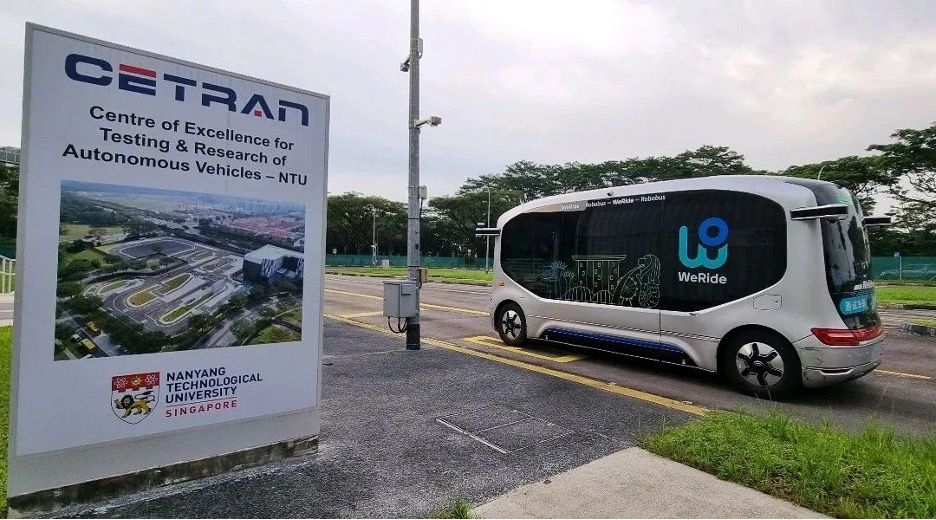After years of aggressive expansion at home, China’s autonomous vehicle upstarts are now setting their gaze on overseas markets. WeRide, in particular, has been on a licensing spree.
On Monday, WeRide announced it has obtained two licenses from Singapore that will allow its robobuses to test on public roads on a “larger” scale. The two permits, called M1 and T1 respectively, are granted by the Land Transport Authority (LTA) of Singapore and will enable WeRide’s self-driving buses to test in areas including the One North tech cluster and the National University of Singapore.
The news came just five months after WeRide announced it had secured a self-driving license to test its robotaxis on open roads in the United Arab Emirates, which has a bold agenda to automate its transport system. The company also holds various levels of AV permits in the U.S. and its home country China.
In recent years, China’s AV companies have taken a turn to ramp up their commercial efforts, thus placing relatively less emphasis on the cash-hemorhaging pursuit of Level 4 robotaxis. Deeproute, for example, is forging closer ties with car manufacturers, while others, such as WeRide, are investing in autonomous buses that move at a lower speed, in fixed routes, and have less unpredictable traffic conditions to navigate.
As one of the densest cities in the world with an aging workforce, Singapore started its push into AVs in 2014 as a means to cope with its land and manpower constraints. According to the LTA, the city with over five million people has a measured approach to rolling out AVs and has completed the first phase in “test beds,” or controlled environments.
The island state is now gearing up to enter the second phase of development, wherein AVs for passenger and utility purposes are allowed to operate in selected areas. It’s attracted other global players in the self-driving arena, including the Aptiv-Hyundai joint venture Motional, which has been building and testing robotaxis in the city.
One of the licenses that WeRide obtained is called Milestone 1 or M1, which, according to the LTA’s categorization, denotes that AVs can test on open roads in certain areas with safety operators who have full control of the vehicles.
Entering a foreign market takes months if not years of relationship building with regulators and business partners, and WeRide has been diligently preparing. Its list of investors, which together have shelled out over $1.4 billion in funding, include SMRT, a major public transport operator in Singapore, and K3 Ventures, a local investment firm.
On the business side, WeRide recently signed strategic cooperation agreements with Woodlands Transport Services, one of the country’s largest private transport operators, and bus service company EZ Buzz.
WeRide has become a poster child in the wave of Chinese tech firms expanding to Singapore, attracting the attention of high-profile political figures. In March, the city-state’s prime minister Lee Hsien Loong took a ride in a WeRide robotaxi on his visit to China. Singapore is a “regional center” for the company’s Asia-Pacific market expansion, WeRide’s founder and CEO Tony Han said during his reception of Lee’s entourage.
As one of China’s most-funded AV companies, WeRide was valued at $4.4 billion last year and confidentially filed to go public in the U.S. in March.
Source link









